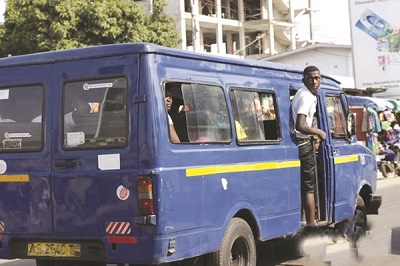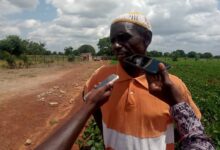
Malaria is still a major public health problem in Ghana even though, the country has seen significant improvement in its fight against the disease over the years. These gains that the country has chalked so far in relation to reducing the malaria burden could be attributed to the several malaria control interventions implemented in line with its National Strategic Plan. The Ghanaian population are reached interventions such as the Distribution of Long Lasting Insecticide Nets (LLINs) through mass campaigns, Indoor Residual spraying for areas with high parasite prevalence, Larval Source Management, Seasonal Malaria Chemoprevention (SMC), Prevention of malaria in pregnancy, adherence to test treat and track initiative and supported with advocacy and behaviour change communications as well as monitoring and evaluation and surveillance.
Evidence is overwhelming that use of Long‐Lasting Insecticidal Nets (LLINs) is a highly cost‐effective strategy for malaria prevention and has been contributing to significant reductions in malaria morbidity and mortality in recent years.
Currently, malaria accounts for about 34 per cent of Outpatient Department cases and 22 per cent of inpatients cases and 2.1 per cent of inpatients death in the country. Ghana is also counted among the 11 highest malaria burdened countries in the world, with the country recording 333 malaria death at the end of 2019.
According to the National Malaria Control Programme /Ghana Health Service (GHS), since 2012, the proportion of OPD malaria cases tested by microscopy or Rapid Diagnostic Test (RDT) has steadily increased from 40 out of every100 cases in 2012 to 96 out of 100 being tested in 2019. In terms of LLINs usage, there has been some improvement between 2016 and 2019. Household ownership increased from 42 per cent to 54.0 per cent
Even though Ghana may be making strides in achieving zero malaria deaths, it appears the country need to strife harder especially in its efforts to reduce the cases.
The writer is talking about conductors in commercial vehicles popularly called ‘mates’ and some drivers and mechanics who sleep in the vehicles after work. A common knowledge in the country that many of the drivers as well as majority of apprentice mechanics sleep in their vehicles after the day’s work.
But sadly, many of these individuals are exposed to mosquitoes whilst they struggle to catch some rest after a hard day’s work. the daily exposure of these people to all kinds of mosquitoes put them at risk of malaria and other related diseases.
Isaac Akwei, popularly known as Master Akwei, a commercial trotro driver on the Accra-Nsawam road recounts how one person who was apprentice to him nearly died of malaria having been sleeping in his vehicles after work.
“Nyamenkoa, nka owu y3” to wit “it was only God that saved his life.” For him, ever since he encountered that problem, he has never allowed any of his mates to sleep in his vehicle after the day’s work.
“If people come to learn driving from me and they have no place to sleep, I don’t take them because I will not allow you to sleep in the vehicle,” he said.
For him, it is rather good not to teach someone driving than to expose them to malaria by allowing them to sleep in vehicles.
“Many of the mates at the station are always falling sick because they sleep in the vehicles after work. You can imagine the number of mosquitoes at the station which will feed on them ..”
Benjamin Tetteh preferably called Iron Boy, who is also a trotro driver at the
Mallam-Kaneshie stretch of road said “there are too many breeding places at the stations for mosquitoes to breed, you are only killing yourself there slowly by letting the mosquitoes bite you”.
According to him, many of the mates who sleep in the vehicles only do so because they do not have any place to sleep.
“It is not possible to mount the ITN in the car and you cannot also use mosquito coil in the car. Nobody will allow you to light a coil in his car and so you have to sleep on the seats,” he explained, adding that “one cannot also use insecticide spray because after a few minutes, because the vehicles do not have proper windows, the mosquitoes will come back.”
In an interview, Yaw Boateng, a trotro mate, said “we are immune to malaria because they have been biting us every day when we sleep in the vehicles saying that “Madam ntonton no dea, yeneomoanaewo ha” to wit, “Madam, we live here together with the mosquitoes”.
For Yaw Boateng, he takes malaria drugs regularly to protect himself against the disease saying that “I take malaria drugs always. Many of the boys (mates) who sleep in the vehicles also take the malaria drugs always”.
Stephen Laryea, a trotro mate along the Circle-Madina route told Ghanaian Times that he recently recovered from malaria and that he now perches with a friend in a kiosk where they use ITN.
“Madam, I was down with malaria recently but I’m okay now. I could not work for two-weeks. I went through hell.”
There are several hundreds of people like, Yaw Boateng and Stephen Laryea who sleep in places that exposed them to malaria-biting mosquitoes and this group of people must be factored into the national efforts in the fight against malaria.
In an interview with the National Malaria Control Programme (NMCP) Manager Dr Keziah Malm said she feared rise in cases despite the fact that Ghana had made big gains in the fight against malaria and elimination could remain a distant reality if we do not get people to sleep in the mosquito nets or use other interventions.
With particular reference to the aforementioned scenario, Dr Malm indicated that she had toured some districts to inspect on a nationwide mapping of mosquito breeding sites being undertaken by the vector control unit of the Zoomlion Ghana Limited in collaboration with the National Malaria Control Programme.
She noted that the mapping of these breeding sites across the country was done by the use of smart devices aided by an application software to digitally record the Global Positioning System (GPS) coordinates of specific mosquito breeding sites for application of biolarvicide to kill mosquitoes.
Outling these interventions as some of the multifaceted approach being executed towards reducing mosquito population, she added that indoor residual spraying, the use of long-lastinginsecticide nets and the larviciding exercise across the country are efforts to provide protection to the general population
Dr Malm bemoaned some human activities such as creation of stagnant water as contributing to the increase in mosquito breeding sites and urged the public to desist from activities that created ditches for water to collect which subsequently become breeding sites for mosquitoes.
She gave the assurance of engaging relevant institutions and stakeholders such as environmental health officers in the area to find approaches to help communities improve on good sanitary practices which will minimize breeding grounds for mosquitoes.
Dr Malm indicated that national prevalence of malaria parasiteamia had dropped, however she cautioned that malaria cases are still high and there is the need for serious attention,” She encouraged community members especially the outdoor sleepers to find better ways of using the LLINs to protect themselves. There are so many ways that LLINs could be used. You do not need a bed to be able to hang and sleep under the nets.
Though the behaviour change is main challenge when it comes to LLIN use, she was optimistic that with intensified sensitization across various groups and with the support of various stakeholders and the general population, the nation will meet its intended goal.
BY BENEDICTA GYIMAAH FOLLEY



